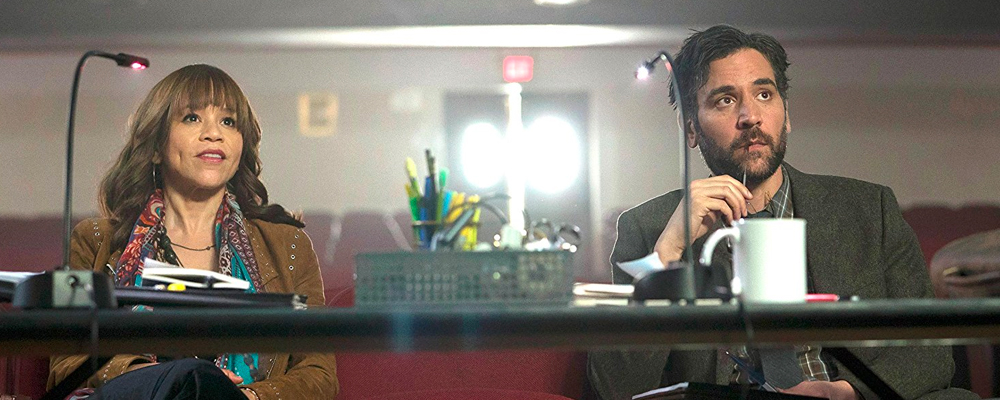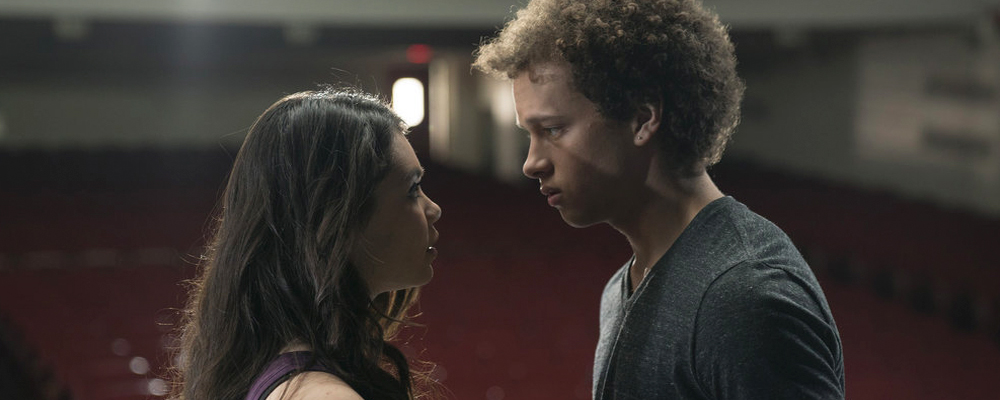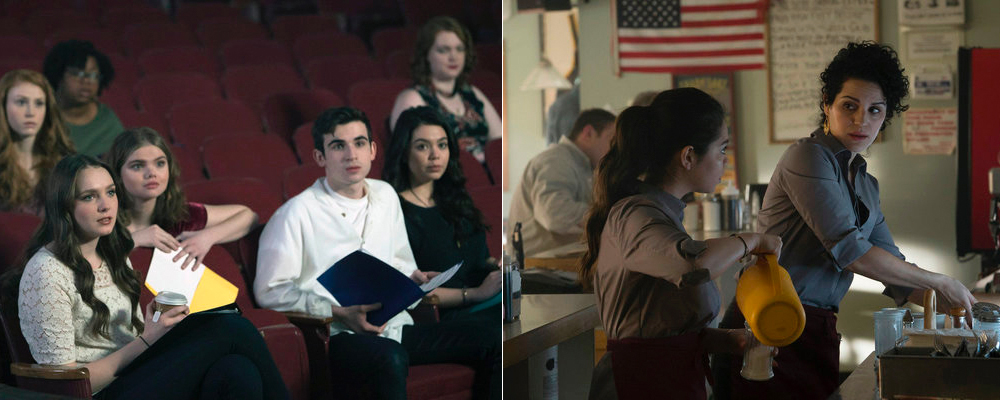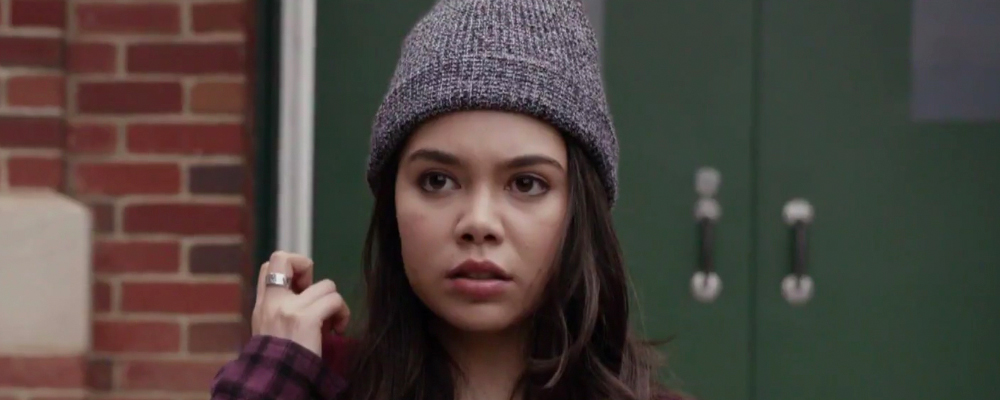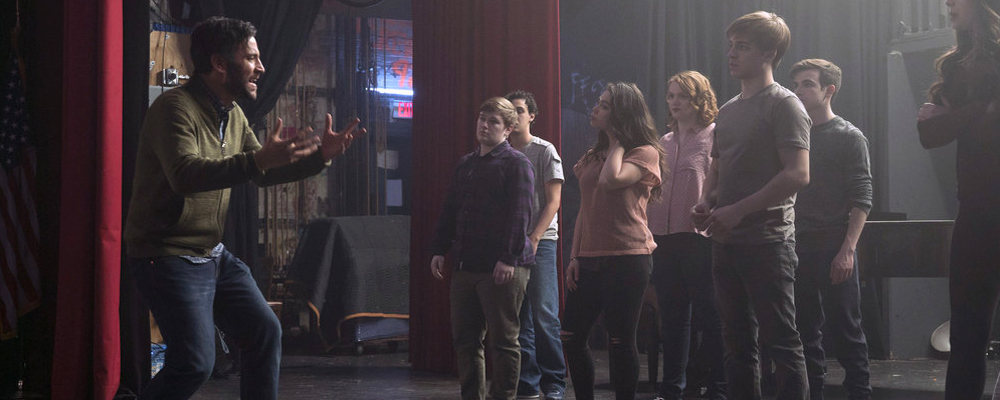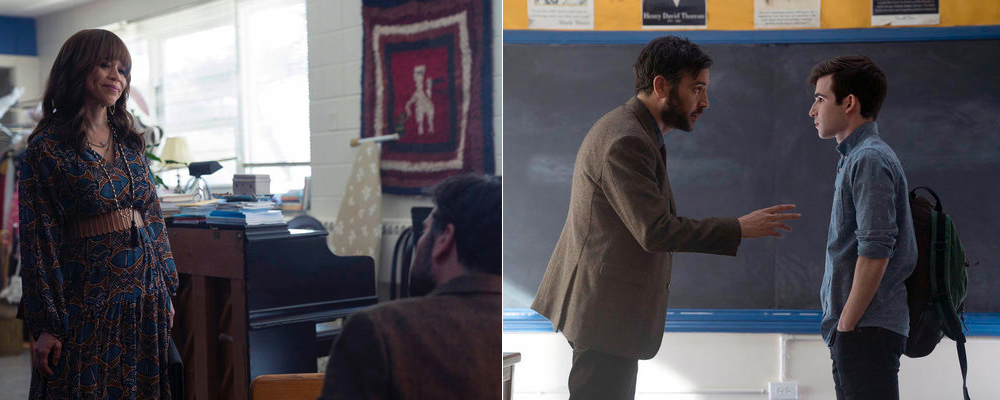NBC’s ‘Rise’ Thrives on Its Feel-Good Premise About the Bonds of Musical Theater
Aaron Berke
NBC’s “Rise” is a new feel-good drama premiering March 13. The one-hour series premieres right after the season finale of NBC’s flagship drama “This is Us.” “Rise’s” placement following the acclaimed tear-jerker series feels entirely appropriate. “Rise” plays on sentimental appeal in a similar way, though it lacks the former series’ unique dramatic structure. But “Rise,” like “This Is Us,” captivates because of its very special human moments. The series paints a picture of high school musical theater that feels authentic and reveals that all-important connection between art and the human spirit.
The pilot episode follows disenchanted high school English teacher Lou Mazzuchelli (Josh Radnor), who gets a sudden bout of inspiration to direct a play. Despite the enthusiastic Lou’s complete lack of experience, the principal surprisingly grants Lou the entire theater department. Lou’s lucky shot comes with a few setbacks though, first and foremost from previous theater director Tracey Wolfe (Rosie Perez), who isn’t too keen on being replaced. She winds up staying on to help Lou, but the students are wary of Lou as well, particularly his radical decision to do “Spring Awakening” as his first production. But as Lou begins auditioning students, he becomes focused on finding his perfect cast. Lou sets his sights on a diverse array of kids, including Robbie Thorne (Damon J. Gillespie), a star football player with more acting talent than he knows, and Michael Hallowell (Ellie Desautels) a transitioning young woman who’s perfect for a male lead. Lou and the students each grapple with their difficult personal lives, but at the end of the day, the musical brings them all together.
“Rise” succeeds largely because of Josh Radnor’s infallible earnestness. Radnor formerly played Ted Mosby, the romantically inclined protagonist of “How I Met Your Mother.” The two characters have a lot in common. Like Ted, Lou is a teacher with an affinity for great literature. And Lou, like Ted, possesses a naïve enthusiasm that helps compensate for his total inexperience. Lou is in completely over his head, combating students, the principal, his assistant director, and the football coach, all to get his play produced.
Another actor might be inclined to convey arrogance or self-assuredness in this situation. But Radnor possesses a wonderful capacity for connection, a sure-footed warmth that suggests he can completely read every other person in the room. This acting trait worked wonders in connecting Ted to the various women in his life. Here, Radnor’s ability allows him to connect with his students in a way that feels totally authentic. When Lou tries to convince Robbie to take a part in his play despite the football player’s reluctance, it doesn’t feel like self-interest. It feels like Lou has found a genuine way to tap into his student’s deepest desires and understands what Robbie needs to thrive. Radnor’s intimate honesty sells this point beautifully.
In the pilot episode, we begin to see little kernels of how Lou’s relationships with his individual students might begin to form. Each of the students starts down their own path, and Lou, a teacher through and through, is the one who helps them get there. One of the students, Simon (Ted Sutherland), comes to Lou concerned about his part in “Spring Awakening” because it’s a gay role. Simon is worried what his very Christian parents will think. Recognizing the boy’s insecurity, Lou gives Simon the encouragement he needs to take ownership of the part and confront his parents. When Lou casts Lilith Suarez (Auli’i Cravalho) in the lead female role, it’s a major coup, because the part was expected to go to Gwen (Amy Forsyth). This shake-up gives Lilith a new-found confidence that grants her the tools to offset her crumbling family life.
Consistent among “Rise’s” initial themes are the battle between creativity and the administration. Everyone, from the principal to the coach to the kids’ parents, wants to halt Lou’s and the students’ ambitions. Robbie becomes the focal point of this struggle as Lou taps into his potential, but the football coach refuses to let Robbie participate. Despite his standing as a star football player, the theater calls to Robbie. The arts provide an outlet that breaks traditions and refuses to conform to stereotypes. Robbie encapsulates this victory of the theater, and “Rise” heightens its own standing as a series about breaking the established rules and following your heart’s desire.
“Rise’s” first episode wraps itself around a series of heart-warming moments. Lou encouraging Simon to try something new, Simon defying his parents to do the play, Robbie’s mother reminding him that no voice is more important than his own. Love of the theater is what ties Lou and these students together, and it’s what helps set the series apart. The pilot also sets up individual arcs for a number of the characters. These story beats are not all immediately successful. Whenever the storyline strays too far from the through-line of theater, “Rise” begins to work off of clichés. Lilith feels betrayed by her mother for sleeping with the football coach and lying to her about it. Gwen, the coach’s daughter, blames Lilith and takes the anger out on her. Lou has difficulty balancing his responsibilities at home with his new job, and his family life is strained, particularly because of his alcoholic son, Gordy. The pilot strings together these plot threads too quickly, with the result that they don’t feel earned. They’re too insulated from the main storyline to feel entirely relevant.
Other plot threads, like Simon’s relationship with his parents, and Robbie’s inner struggle to find himself, are more interesting, precisely because they connect back to the theater. Whenever “Rise” focuses on the theater’s capacity to connect and inspire, the show comes to life. “Rise” makes theater feel like the vibrant, beating heart of high school. The new series feels a bit out of time, with a sweet sensibility that could easily belong to the 90’s. “Rise” seems to have a bubble around it, insulating it from the effects of modern television. But that, ultimately, is a strength. If “Rise” were more cognizant of modern TV’s bleakness, it would be incapable of sustaining its warmth. When “Rise” does connect to modern social issues, that warmth seeps into its scenes. A football player dismisses his own stereotype to become an actor. A Christian boy defies his strict upbringing for a gay part in the musical. A transgender student performs in a role that frees him to be himself. Theater does not discriminate. Theater warmly accepts these students for exactly who they are.
At the end of the pilot, Lou is nearly sacked, but the students, and even Tracey, the formerly disgruntled theater head, stand behind him. For all Lou’s inexperience, the students have come to respect his vision, and they want to see it through. The students demand to be heard, so they sing their feelings out loud, carrying the spirit of musical theater with them. This is where “Rise” succeeds most; as a show about theater’s universal ability to put differences aside and bridge human connection. With an inspiring performance from Radnor and a thematically rich premise, “Rise” sets itself apart as a series that joyously wears its heart on its sleeve.
“Rise” Season 1 premieres March 13 and airs Tuesdays at 10 p.m. ET on NBC.

